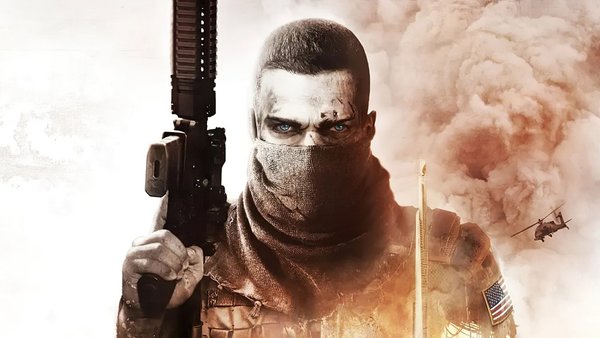No, We Won't Shut Up About Spec Ops: The Line
Spec Ops: The Line, Then And Now

To establish my history with Spec Ops: The Line, I first picked up the game in late 2012, when a certain critic described it as "the most exciting thing to happen in video game narrative for years". I powered through it and it made me so depressed that I had to play Ōkami for 10 hours afterwards. I was, however, deeply impressed by its unexpected plunge into horror territory and its vocal refutation of the oh-so-prolific modern military shooter genre.
Fast forward to the present day, and we've all been beaten around the head by discussions of Spec Ops' moral conundrums that we roll our eyes every time it turns up on a list. Returning to the game a few weeks ago, I dove in head first with the intent of seeing whether its narrative still held up. Surely, with a decade's worth of games offering more nuanced takes on morality, violence and conflict, this was going to feel trite and on-the-nose, best left as a relic of the shooter boom.
For the three of you who aren't familiar with what Spec Ops: The Line is about at its core, the game follows Captain Martin Walker and his elite Delta Force team, aided by Lieutenant Alphanso Adams and Staff Sergeant John Lugo, as they are sent into a ruined Dubai beset by a devastating sandstorm. Their mission is to perform reconnaissance and attempt to locate Colonel John Konrad, who has led a battalion into Dubai to aid its citizens, and immediately radio for extraction upon finding any survivors. A loose adaptation of Joseph Conrad's novel Heart Of Darkness, things inevitably go south as anyone who has read the book would attest to.
From almost the moment the game begins, a few crow's feet have started showing. Spec Ops: The Line is not fun to play on a mechanical level. Like, not much at all. While not difficult by any stretch of the imagination, the movement feels clunky, enemy AI isn't great and the weapons themselves lack much punch. All this combined makes for a gameplay experience that's less than rewarding, and if Spec Ops was being judged on its combat alone then it would have been getting 6/10s across the board.
The characters grate a little in the early scenes as well. Walker's expository scene-setting monologue is fawning and melodramatic, and feels like it was ripped straight out of a military recruitment ad. Walker's squadmates, Adams and Lugo, also bring back unpleasant memories of the forced and insufferable bon homie seen in Call Of Duty 4: Modern Warfare and Battlefield: Bad Company. Adams, dry and no-nonsense, scoffs at the wise-cracking Lugo's crass and unfunny jokes, while Walker, steely-eyed and square-jawed, squints into the middle distance.
However it doesn't take long for this veneer of patriotism and camaraderie to start chipping away. Immediately upon entering the stricken Dubai, it's clear that atrocities have been committed by both Arab insurgents and American soldiers, and it's Walker who first opens fire on hostiles who are then confirmed to be refugees.
From here, everything grows increasingly muddy. Walker's squad encounter bombed-out highways, mass graves and execution sites. They then come across a platoon of 33rd Infantry soldiers rounding up civilians, seemingly with intent to massacre them. Walker engages them, and from here on out it's clear the Damned 33rd have gone rogue. The plot thickens when the presence of the CIA reveals evidence of inter-governmental infighting and the monopolisation of the city's water supply, and things swiftly collapse.